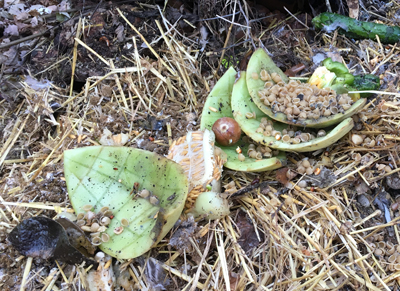Soil Science Society of America
5585 Guilford Road • Madison, WI 53711-5801 • 608-273-8080 • Fax 608-273-2021
www.soils.org
Twitter | Facebook
NEWS RELEASE
Contact: Hanna Jeske, Associate Director of Marketing and Brand Strategy, 608-268-3972, hjeske@sciencesocieties.org
What is vermicompost?
Jan. 15, 2018 – Composting is a great way to reduce waste sent to landfills while benefiting garden soil. The Soil Science Society of America (SSSA) January 15 Soils Matter blog post explains the difference between traditional composting and vermicomposting—and how even apartment-dwellers can take part!
 Traditional composting (thermophilic) uses naturally-occurring heat to break down vegetable waste, paper products, and yard waste. But it also requires contact with the ground and its microbes, and a generous allowance of space and time.
Traditional composting (thermophilic) uses naturally-occurring heat to break down vegetable waste, paper products, and yard waste. But it also requires contact with the ground and its microbes, and a generous allowance of space and time.
Vermicomposting, however, is quicker and can be done on a smaller scale. Worms, such as red wigglers, process the waste into nutrient-dense worm casts for the soil. A quick DIY build with plastic bins makes this possible for more people.
“One of the main benefits of vermicompost is that there is no amount of waste too small to get started,” explains Caitlin Hodges, Pennsylvania State University. “This makes vermicomposting especially attractive to apartment-dwellers who may not produce quite as much compostable waste as those with yards. Additionally, vermicomposting is much faster than thermophilic composting in producing a soil-ready amendment (about a month versus 2-6 months).”
Hodges, herself an apartment-dweller, uses a small vermicompost system. “Whichever method you chose, both thermophilic compost and vermicompost are great ways to reduce your waste output and create a great soil-improving amendment.”
To read the entire blog post, visit http://soilsmatter.wordpress.com.
Follow SSSA on Facebook at https://www.facebook.com/SSSA.soils, Twitter at SSSA_Soils. SSSA has soils information on www.soils.org/discover-soils, for teachers at www.soils4teachers.org, and for students through 12th grade, www.soils4kids.org.